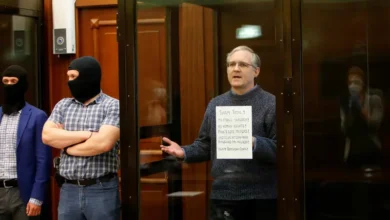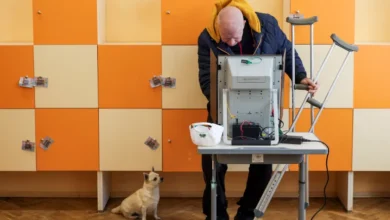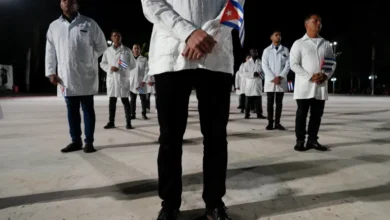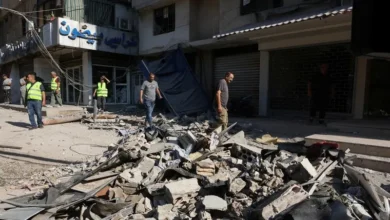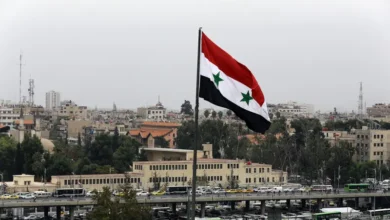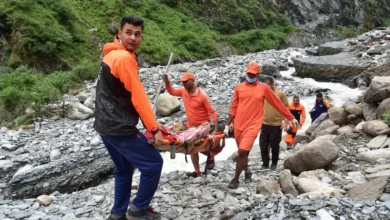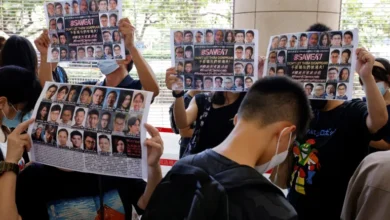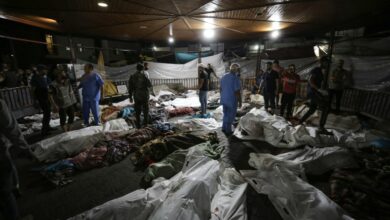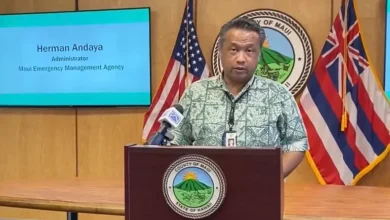Turkey earthquake: How are people reacting to state response?
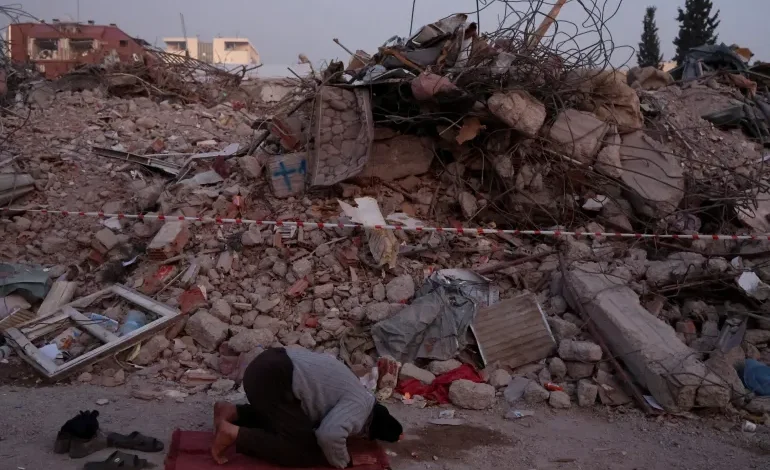
When Halil Ibrahim Çalışkan looks at his ruined supermarket on the ground floor of an earthquake-shattered building, he does not blame his bad luck.
“We knew that we lived in an earthquake zone. It’s not fate. People are to blame for making weak buildings,” the 50-year-old shop owner told Al Jazeera in the southern Turkish city of Osmaniye.
Çalışkan, like many earthquake victims, blamed construction companies and what he said was the corruption and incompetence of the authorities in allowing them to cut corners.
“The system is wrong from head to toe,” he said. “You cannot blame fate for everything – people have to do their jobs, they have to follow the laws.”
His shop is in a building named after Devlet Bahceli, the leader of the far-right Nationalist Movement Party (MHP) and close ally of President Recep Tayyip Erdogan.
Bahceli was born in Osmaniye province and his mansion, about 100 metres away on the same street, does not have a scratch on it, while Çalışkan was not allowed to enter his building because it was unsafe and will be demolished.He could only salvage some goods from the outside refrigerator to return to the suppliers and reduce his debt. He estimates he has lost about 1 million Turkish lire ($53,000) from the disaster, has no insurance and no prospects for making a living, and says he has had no support from the state.
Questions over preparedness, culpability and the response to the disaster are growing as the country struggles to recover about a week after devastating magnitude 7.8 and 7.6 earthquakes that have now killed more than 35,000 people in Turkey and more than 5,800 in Syria.
Erdogan has admitted to “shortcomings” in the state’s response to the earthquakes but insisted the size of the affected areas and harsh winter conditions meant it was “not possible to be prepared for such a disaster”. Turkish authorities say about 13.5 million people have been affected in an area roughly the size of Britain.
